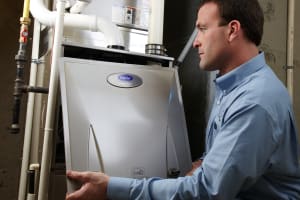Heat Pump vs Furnace - Pros & Cons of Each Heating Type
By Travis Baugh
While furnaces and heat pumps both warm up indoor air, they differ in heating capabilities, energy efficiency, maintenance requirements, use of space, and cost. That’s what makes the age-old heat pump vs. furnace debate so engaging.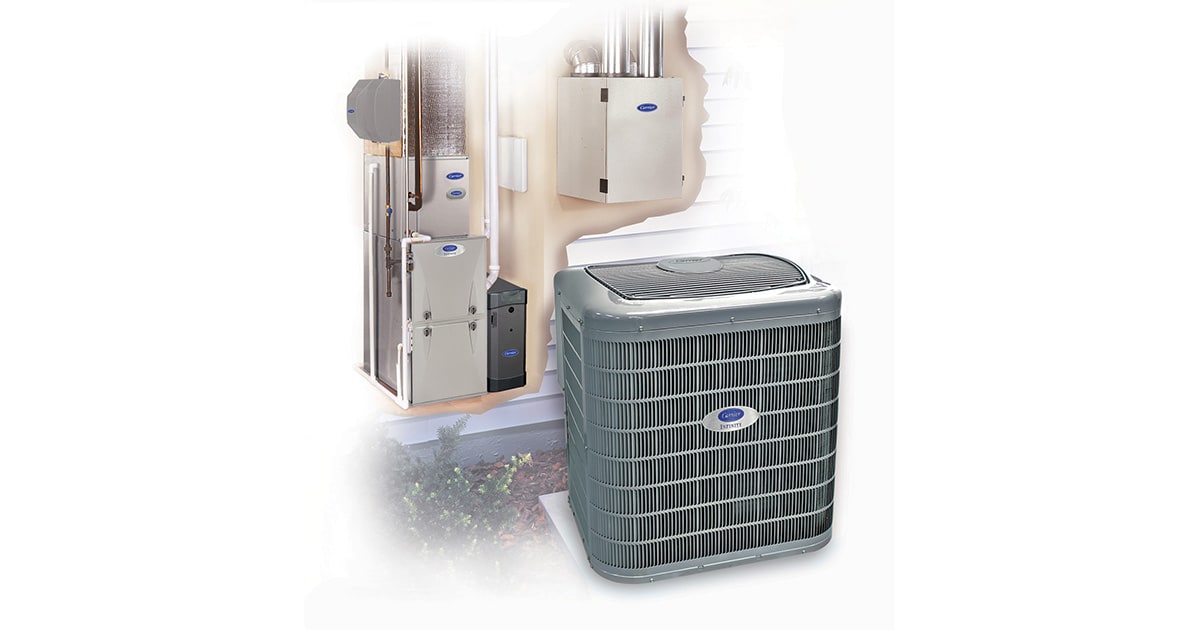
Key Takeaways
- Location plays a significant role in choosing between heat pumps and furnaces, with heat pumps generally more suitable for milder climates and furnaces for colder regions.
- Electric heat pumps are versatile, providing both heating and cooling functions, while furnaces only provide heat, necessitating a separate air conditioning unit for cooling.
- Dual fuel systems , combining a furnace with a heat pump, can offer enhanced efficiency and savings, especially in certain climates.
- Factors such as energy efficiency, safety considerations, upfront costs, installation requirements, and maintenance needs should be weighed when deciding between gas furnaces and electric heat pumps.
Region as the Most Important Factor
The area of the country in which you live is perhaps the biggest factor in your debate. Traditionally, heat pumps are best in areas where winters are mild - think southern and coastal states. Furnaces offer greater ability to heat your home during harsher, colder winter conditions and are therefore better suited in northern locations. Most furnace heating systems in the U.S. use natural gas for combustion, but propane, oil and electric furnaces are used as well. Read more about gas vs. electric furnaces here . By selecting a heating system suited to your climate, you can enjoy better comfort and probably lower operating costs as well. Learn the distinction between furnaces and heat pumps, as well as the benefits of electric vs. gas heating, the energy efficiency of both options, and more.
Below we outline when you may want to consider different heating options for your home:
- Heat pumps are appealing for those residing in temperate climates with infrequent severe winters.
- Gas furnaces are optimal for areas experiencing prolonged cold weather.
- Electric furnaces are suitable for moderate climates requiring additional heating beyond what heat pumps provide, especially in areas where natural gas or propane are not available.
- Oil furnaces are commonly found in older homes without natural gas access, particularly in the Northeastern United States and Canada.
HEAT PUMP VS. GAS FURNACE
When making your gas furnace vs. heat pump comparison, you’ll want to take a number of factors into consideration, including how they work, efficiency, maintenance requirements, and size/space requirements.
ELECTRIC VS. GAS HEATING - HOW THEY WORK
To generate heat, furnaces burn oil or gas, while heat pumps run on electricity, drawing heat from outside air—even cold air—and transferring it indoors. Learn more about how do gas furnaces work and how do heat pumps work. Because of how they work, heat pumps produce less heat than furnaces and work best in warmer climates (zones 1-3 on the U.S. Department of Energy climate zone map).
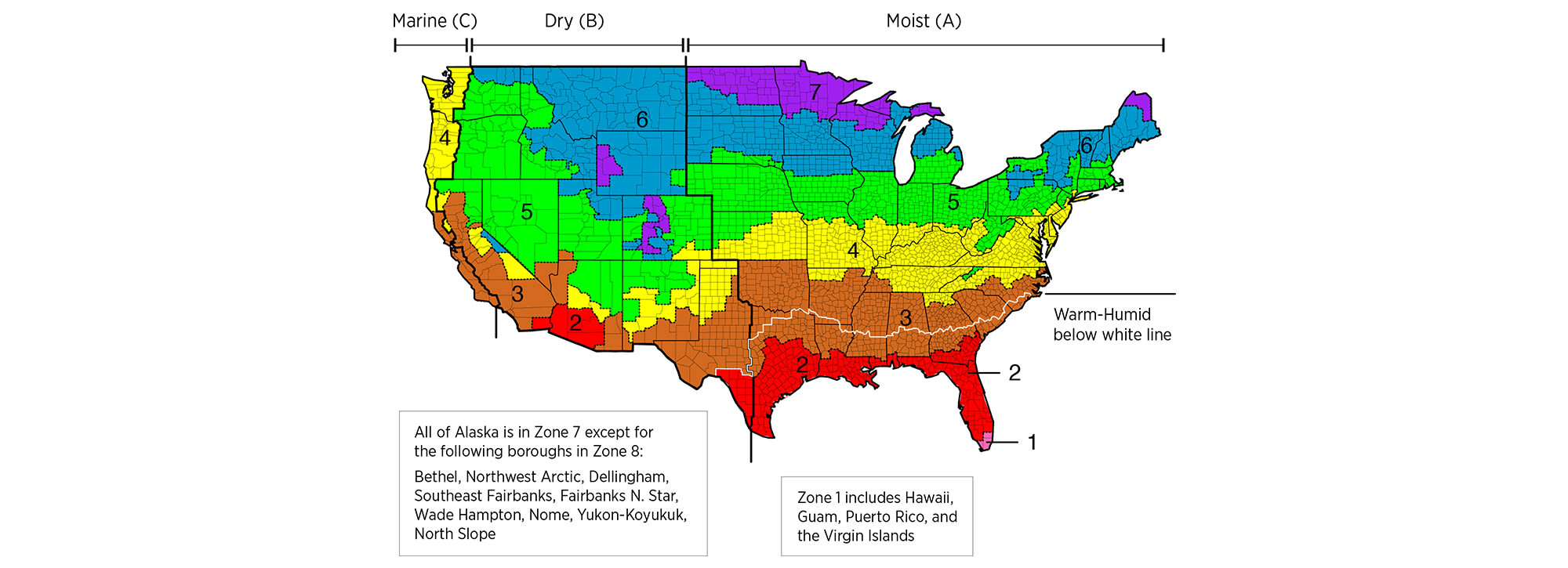
Electric heat pumps are more versatile in creating indoor comfort—they provide heat in winter and can also act as air conditioners in summer. This means people in warmer climates can heat and cool their home using just a heat pump system. On the other hand, furnaces only provide heat, so a separate air conditioning unit is required to cool your home in warmer months. While both products have different purposes, some climates allow for a furnace to be installed with a heat pump, known as a dual fuel system for heating and cooling. A dual fuel heating system can offer greater savings. One example would be to pair a gas heater with an air-source heat pump. With two heat sources, the system will gauge the outdoor temperature to determine the most efficient option to heat your home.
Energy Efficiency
When comparing gas heat vs. an electric heat pump, the difference in energy efficiency between gas furnaces and heat pump systems is complicated. From a strictly scientific basis, highly-efficient heat pumps are technically more energy efficient in that they can transfer more energy than they use. By contrast, a high efficiency natural gas furnace like the Carrier Infinity 98 with Greenspeed® Intelligence can provide up to 98.5% efficiency (AFUE).
Here’s where it gets complicated. High efficiency heat pumps in warmer climates typically use less source energy on average compared to gas furnaces. In colder climates, 95% efficient gas furnaces fare better than ENERGY STAR® heat pumps. And, due to the relatively lower cost of natural gas versus electricity, lifetime operating costs should be considered as well. Learn more about high-efficiency furnaces .
Your local Carrier expert can help you navigate the energy efficiency comparisons for your home.
Safety Considerations
There are several safety considerations when comparing gas heat vs. electric heat pumps. Gas furnaces pose a higher risk of gas explosions and carbon monoxide poisoning compared to electric heat pumps. However, gas furnaces typically have safety features such as automatic shut-off valves and pressure regulators to prevent explosions, while electric heat pumps have safety features such as automatic shut-off switches and refrigerant leak detectors. It is important to have a qualified technician regularly maintain and inspect both types of systems to ensure their safety and efficiency.
Maintenance
Both heat pumps and furnaces will last longer and operate more efficiently with preventative maintenance. Both systems include air filters that most homeowners can easily replace. Typical residential heat pump systems include an outdoor unit and an indoor unit that are recommended to be cleaned and inspected annually. A gas furnace does not require an outdoor unit, but is often paired with a central air conditioner unit. Your Carrier expert can recommend the proper service schedule based on your unique system. Explore heat pump maintenance and furnace maintenance.
LIFESPAN
On average, heat pumps and gas furnaces can have a similar life The longevity of heat pumps and furnaces depends on various factors such as usage patterns, the size of the system, installation quality, thermostat settings, and environmental conditions. Regular maintenance and timely repairs can extend the lifespan of both heat pumps and gas furnaces. Learn more about the factors that influence how long a furnace lasts .
Space
Furnaces typically require at least 30 inches of clearance on all sides and are installed indoors. A heat pump requires only 24 inches of clearance and is installed outdoors. However, a traditional air-source heat pump system also requires an indoor air handler unit called a fan coil.
Regardless of which option is best for you, Carrier offers a complete line of furnaces, including gas furnaces that can be converted to propane furnaces and heat pumps designed to provide options for virtually every home.
Should I Replace Gas Central Heating with a Heat Pump?
Whether to replace a gas central heating system with a heat pump depends on several factors, including the efficiency and age of the existing system, the climate of the region, and the cost of installation. Heat pumps are generally more efficient than gas furnaces, but their efficiency may be affected by colder temperatures. The cost to completely replace a central heating system should also be taken into consideration when deciding whether to switch to a heat pump.
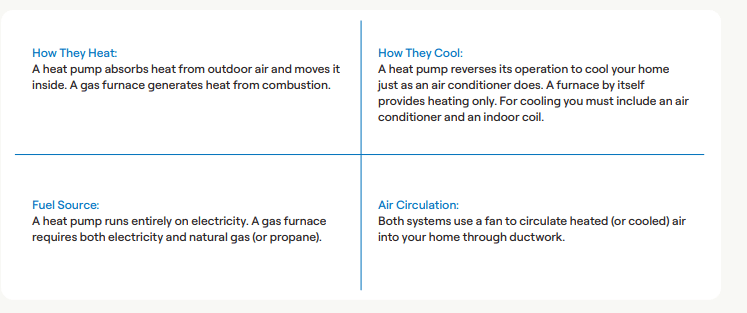
Which is cheaper: gas or electric heat?
Gas furnaces typically have lower upfront costs compared to electric heat pumps, but higher installation costs due to the need for gas lines and ventilation systems. While gas is generally cheaper than the cost of electricity, gas furnaces may have higher lifetime operating costs due to the cost of maintenance and repairs. In contrast, electric heat pumps tend have higher upfront costs but lower installation costs and can be more efficient in moderate climates, resulting in lower lifetime operating costs. Learn more about heat pump cost and furnace cost.

OIL FURNACE VS. HEAT PUMP
If you live in an area where oil furnaces are common, the oil furnace vs. heat pump debate is similar to the gas furnace/heat pump comparison.
With oil furnaces, you’ll need to take into consideration the cost of installation – a heat pump requires both an outdoor unit and an air handler. You’ll also want to consider the cost of heating oil versus the cost of electricity. In milder climates, high-efficiency heat pumps can be a very good and effective option. In colder climates, and oil furnace may be able to provide reliable comfort even when temperatures drop well below freezing.
With an oil furnace, you’ll need to be sure you don’t run out of oil, while a heat pump will continue to operate as long as you are not experiencing a power outage.
When all considerations still leave you sitting on the fence, your decision may just come down to what type of heating you are most comfortable with.
Carrier offers a number of oil furnaces to choose from in addition to our complete family of high-efficiency heat pump options.
ELECTRIC FURNACE VS. HEAT PUMP
When making the electric furnace heating vs. heat pump comparison, the biggest similarity between the two types of electric heaters is they both use electricity to heat your home. And, both are more prevalent in southern states where winters are milder and heating needs take a back seat to cooling.
Electric furnaces use electric coils to generate heat, while heat pumps use electricity to move heating energy from outside to inside. Heat pump systems, especially in colder climates, often will often have a backup heat source for more extreme weather – ironically, electric resistance heating coils in the air handler unit (fan coil) are common.
Electric furnaces are considered to be 100% energy efficient, but bear in mind they can actually cost almost 2.5 times more than a typical electric heat pump to output the same amount of heat.1
And, a heat pump system provides cooling as well as heating. An electric furnace will need help during the summer months with central air conditioning or other sources of cooling comfort.
Keep in mind, most of our discussion points about heat pumps are targeted towards air-source, split-system, forced-air heat pumps, the most common type of heat pump used in the U.S. If you are interested in geothermal or ground-source heat pumps, you’ll find many of the same benefits. They can achieve much higher energy efficiencies than air-source models, but also typically come with a higher initial cost for a first-time installation. Ductless heat pumps are yet another option, but are more commonly used for home additions or adding comfort to older homes with no ductwork.
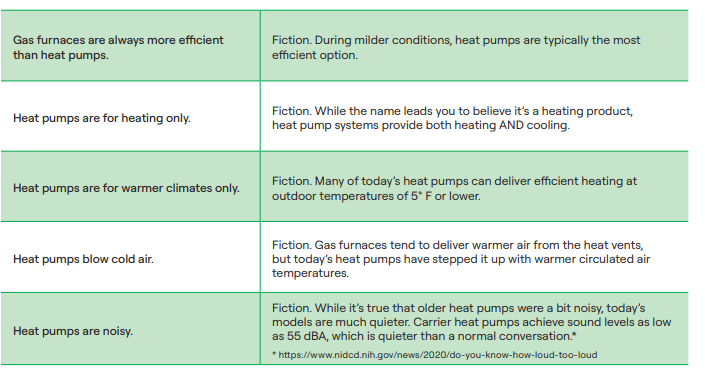
FREQUENTLY ASKED QUESTIONS
CONTACT A PROFESSIONAL
When it’s time to make a choice, your local Carrier dealer can help. Carrier experts offer a wide range of heating system options, including air source heat pumps, gas furnaces, oil furnaces and more. They can assess your needs, discuss the pros and cons of each and make recommendations on options that can work for your home, including equipment and installation cost estimates.
Contact a Carrier Dealer to get an estimate for your home
1https://www.nhec.com/new-heat-pump-calculator/- Read more about comparing types of furnaces
- Calculating furnace size
- Learn more about furnace installation
- Explore the difference between heat pumps vs air conditioning
- Discover heat pump installation options
- Find out how much a heat pump costs

